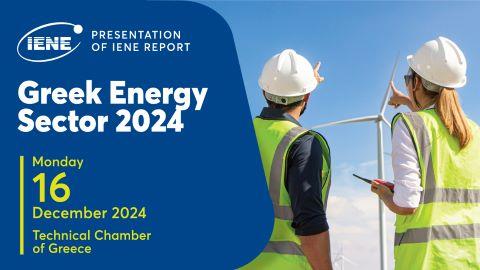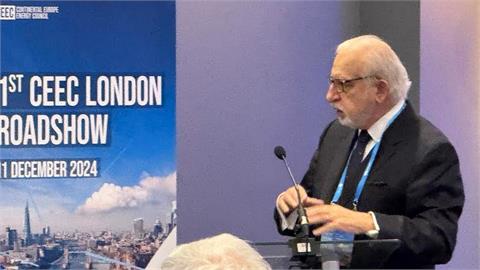Following an invitation by the Athens based Institute of Alternative Policies (ENA) the chairman and Executive Director of IENE, Costis Stambolis, participated as moderator of one of the two sessions in this one day online event which took place on January 18 and sought to explore the role and applications of " Green Hydrogen" in Greece and the broader SEE region.
Several eminent experts from government,academia and independent think tanks representing a wide range of disciplines took part as speakers and panelists and presented various aspects of green hydrogen focusing on production techniques, economics, application areas and case studies.
John Efstathopoulos, Coordinator of ENA's Observatory of Sustainable Development, opened the proceedings and underlined the great potential which "green hydrogen" has and its key role in decarbonization as we are moving towards a clean fuel environment. Opening the first session of the event Prof. Nicholas Farantouris, who also happens to be a Senior Research Associate of IENE, stressed the central role that "Green Hydrogen" is likely to have in the Energy Transition phase and hence the need to study its large scale introduction on a multidisciplinary level and draw some useful conclusions, at this relatively energy stage, before committing huge resources.
Assistant professor Nicholas Makridis, from the University of Patras, Dr. Vasili Iglezakis from the University of Strathclyde and Dimitrios Triantafyllopoulos from Mytilineos Group contributed content and participated in a discussion which focused on technologies and economics.
Opening the second session of the Symposium, IENE's chairman referred to "Green Hydrogen" as a much promising and vital part of the broad energy scene and cornerstone of the new energy landscape which is now being formed as the sector is gradually integrating clean fuel technologies in the energy mix. Dr. Andreas Poullikkas, Chairman of the Cyprus Energy Regulatory Authority, outlined his vision for a regional electricity market through expanded international interconnections where the introduction of hydrogen solutions could enhance further regional cooperation and help in achieving much lower emissions. Speaking in the same session Mr. Michael Verriopoulos, a civil engineer and ex-Secretary General of the Environment and Energy Ministry, pointed out the need in pursuing an inclusive energy policy at national level for "climate neutral fuels" where hydrogen has a very distinct role to play.
Dr. Nicholas Mantzaris, a chemical engineer and head of the Green Tank think tank stressed the need for a total revision of Greece's National Energy and Climate plan so that hydrogen is included in the overall planning framework. Other contributors in this final session included Assistant Professor Dimitris Panayiotakopoulos from the University of Cranfield and Dr. Antonis Banos university of Bristol. John Efstathopoulos summed up the Symposium proceedings while further information and the conclusions of this well though out event can be found here.




